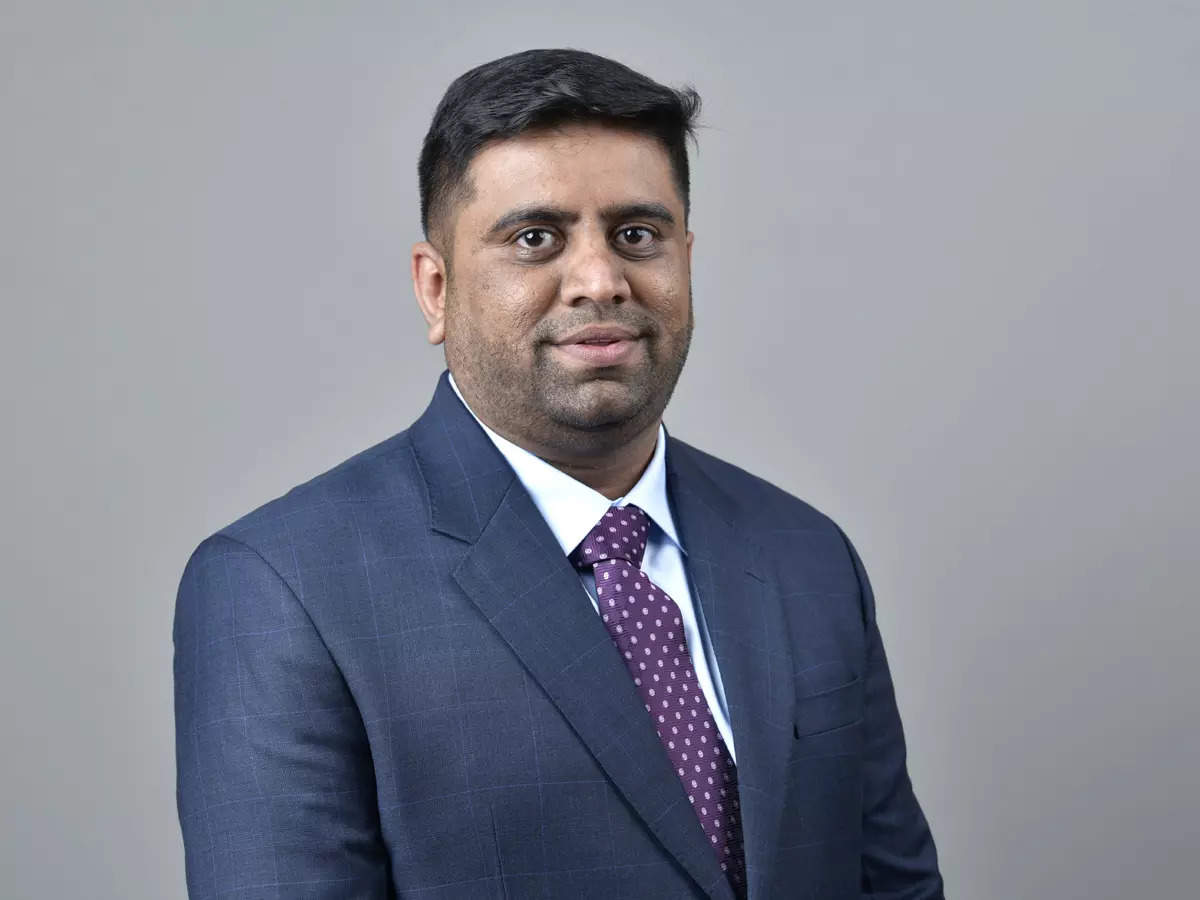[ad_1]
In an interview with ETMarkets, Kasat has over 13 years of experience in capital markets said: “For now, we are tracking the budget as the mega event for everyone. This year, we may see some surprises,” Edited excerpts:
Nifty has run into some turbulence ahead of the Interim Budget 2024. What is weighing on D-Street or is it just profit taking?
Vikram Kasat: Indeed, the Nifty ran into turbulence, everyone was aware of the overbought situation on technical terms, and we were continuously rallying, so the Nifty needed a trigger which happened to be the HDFC surprise element.
Unlock Leadership Excellence with a Range of CXO Courses
| Offering College | Course | Website |
|---|---|---|
| IIM Kozhikode | IIMK Chief Product Officer Programme | Visit |
| Indian School of Business | ISB Chief Technology Officer | Visit |
| Indian School of Business | ISB Chief Digital Officer | Visit |
Additionally, global geopolitical turbulence in the Middle East, and the Red Sea crises, gave the market a nervous outlook, and we saw some good profit booking.
Do you think Indian markets are trading at a large premium compared to historic averages and peers? But in the past, we have seen markets sustain rally even though they might be overvalued.
Vikram Kasat: India is developing its economy at a very aggressive pace, and we are making the global headline now. Everybody is eyeing our policies, consumption pattern, and under the strong political leadership now things are changing in our favour.
Developed markets were dealing with inflation and struggle in their respective economies, whereas we (India) have shifted global attention from China. For now, we are trading at decent premiums looking at the structural changes happening.
What are your expectations from Interim Budget 2024?
Vikram Kasat: Looking at the current scenario, we think sectors that are likely to be in the limelight include names like textile, circular economy, & domestic tourism.
Certain challenges which are faced by these sectors should be recognized and simpler reform will boost and strengthen them.If someone is planning to put in money at current levels – do you think risk-to-reward is favourable? What is the kind of time horizon that one should look at if someone is putting in fresh money?
Vikram Kasat: In my view, if someone is entering the market at this level, should increase their investment gradually. Take corrections (if any) as an opportunity to invest.
This will help him/her to build a strong foundation in the market. I am a long-term equity investor; hence, my view is for the next 7-10 years at least to enjoy the wealth coming through various cycles.
Which sectors are you overweight on for the year 2024?
Vikram Kasat: For now, we are tracking the budget as a mega event for everyone. This year, we may see some surprises.
We will see how things pan out during the budget and this will help us to rebalance our portfolios accordingly if needed, but for now, we are not in a hurry to overweight any counter.
Are there any sectors on which you think one should go underweight or book profits?
Vikram Kasat: We turn underweight on Auto after being overweight during the entire rally. Although we remain constructive on the sector, but we believe that incremental gains will come at a more measured pace.
Are there any sectors where structural stories are continuing and why?
Vikram Kasat: Structural stories in various sectors are emerging due to shifts in demand, consumption patterns, generational attitudes, and rapidly evolving trends.
Recently, we observed this in real estate with a notable shift towards premium/luxury apartments. The automotive sector also experienced a significant shift towards utility vehicles from passenger vehicles.
Additionally, domestic travel witnessed a surge in travelers opting for AC coaches and air travel.
We have seen more SME IPOs hitting D-Street so far in 2024 compared to mainboard ones – what could be the possible reason for this? Do you see more SMEs coming on to D-St as an encouraging sign?
Vikram Kasat: SMEs are getting a lot of attention and there are some reasons – 1) Valuations, 2) the number of companies getting into the IPO, 3) extremely high subscription bids for all the SME IPOs, and 4) Compliance part — there are some concerns area that are needed to be taken care of by the exchanges & SEBI.
SME segments are still not mature enough to handle the volatility and we have seen a similar kind of mania in 2017-2018.
But in the last two years, a lot of new investors and small enterprises have entered with full force to take advantage of the SME market. For me – it is more of a concerning sign, but yes there are good businesses available in this segment also.
We have seen a swift move in railway stocks in the past few weeks. What is driving the rally?
Vikram Kasat: The recent rally in railway stocks can be attributed to several factors. India’s travel market is the fifth largest globally, and key drivers include increased efficiency, development of facilities in railway networks, significant transformations through digitization, and initiatives like the Amrit Bharat trains and Vande Bharat projects. The introduction of super-fast trains has further boosted the sector.
How should one look at the small & midcap stocks? There are mixed views in terms of valuations.
Vikram Kasat: Small and mid-cap stocks have a history of cycles but have consistently delivered impressive returns. Despite being more volatile compared to large caps, these segments offer substantial growth potential even at present valuations.
Corrections are a part of their nature, and experienced investors often view them as opportunities to enter the market.
While small and mid-caps can be cyclical and test investor patience, there are still attractive businesses available at reasonable valuations.
(Disclaimer: Recommendations, suggestions, views, and opinions given by experts are their own. These do not represent the views of the Economic Times)
[ad_2]
Source link
